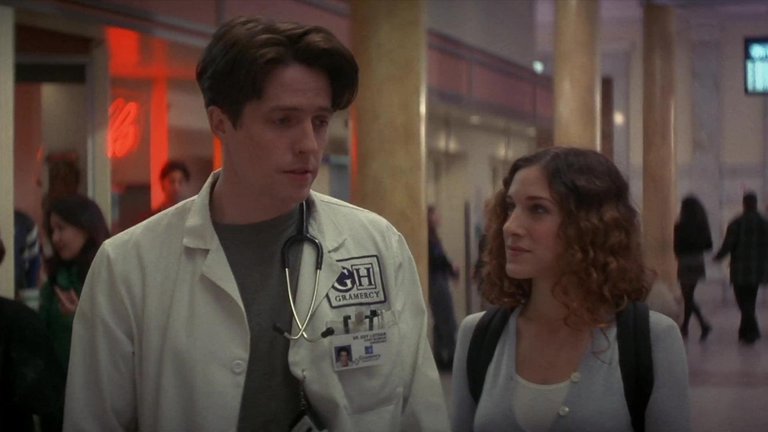Retro Film Review: Extreme Measures (1996)

If you look at this year's celebrity obituaries, you'll notice increasingly high number of people who inhabited this world for more than a century. What was supposed to be a rare phenomenon is going to become something quite normal, and this is just one of many examples of advances in medical science and technology. Yet, those advances, just like in any other area of human endeavour, create new sets of problems – cultural, economic, political and ethical. The ethical problems are subject of Extreme Measures, 1996 thriller directed by Michael Apted.
The protagonist of this film, based on the novel by Michael Palmer, is Dr. Guy Luthan (played by Hugh Grant), young physician who works in one of New York hospital's emergency rooms. When one of the patients brought happens to be naked semi-delirious man, Dr. Luthan can't fail to notice strange unexplainable symptoms. After the patient dies, Dr. Luthan tries to start investigation, but all his attempts are blocked by his superiors. Computer files are erased, the body and autopsy records disappear and Dr. Luthan starts suspecting conspiracy. His suspicions are proven when cocaine gets planted in his apartment. His crusade, now additionally motivated with the desire to clear his name, brings him to the New York's true underworld - homeless people who live in subways and to whom his unfortunate patient belonged. Minor clues begin to point towards Dr. Lawrence Myrick (played by Gene Hackman), one of the world's most respected neurosurgeons whose revolutionary experiments promise to deliver cure for people crippled by spinal injuries.
As a thriller, Extreme Measures doesn't work particularly well. One of the reasons for that is in not very fortunate casting of Hugh Grant, who isn't very convincing in the role of physician. Another one is Michael Apted's tendency to make his thrillers overlong and often confusing. In this case script by Tony Gilroy impedes suspension of viewers' disbelief by almost Mabusean sort of conspiracy. Michael Chricton's Coma, which had used the same premise many years before, was much more convincing and effective. Two things that save general impression of Extreme Measures are excellent music by Danny Elfman, which helps creating the atmosphere of paranoia, and the fact that the thriller aspect of this film serves as nothing more than excuse for film makers to ask some important and not very pleasant questions. Namely, the modern medicine's ability to prolong lives and cure previously incurable diseases comes with a price that sometimes includes things like the lives and health of innocent people. Is that price too high? Should individual human life be protected at all cost or should it be sacrificed for the benefit of others? Are some human lives more valuable than others? Who has the moral right to decide on those issues? Extreme Measures tries to answer those questions, and in doing so, even allows protagonist and antagonist to engage in something which is rare in Hollywood films these days – meaningful philosophical debate. Film makers' bravery in dealing with such issues and ability to make audience think about those issues long after the plot and characters of this film are forgotten are the reasons why Extreme Measures, even with many flaws, deserved to be watched to this day.
RATING: 6/10 (++)
(Note: The text in its original form was posted in Usenet newsgroup rec.arts.films.reviews on October 24th 2003)
==
Blog in Croatian https://draxblog.com
Blog in English https://draxreview.wordpress.com/
Cent profile https://beta.cent.co/@drax
Minds profile https://www.minds.com/drax_rp_nc
Uptrennd profile https://www.uptrennd.com/user/MTYzNA
Brave browser: https://brave.com/dra011
BTC donations: 1EWxiMiP6iiG9rger3NuUSd6HByaxQWafG
ETH donations: 0xB305F144323b99e6f8b1d66f5D7DE78B498C32A7